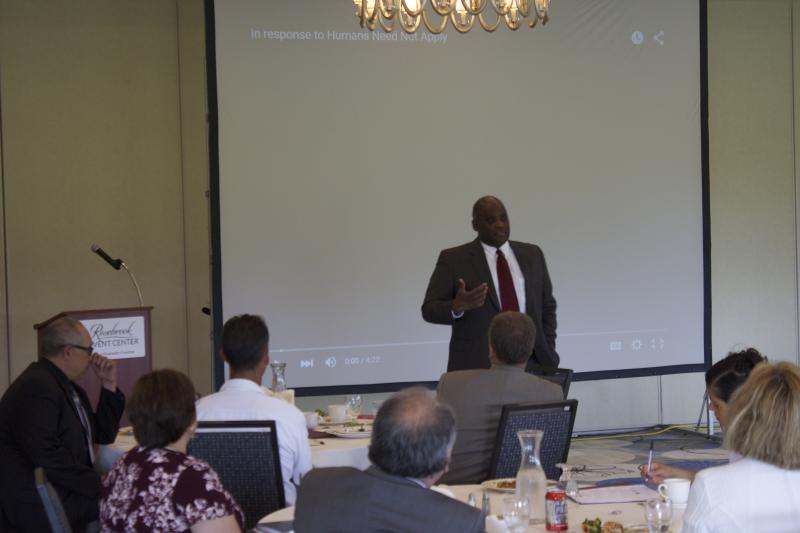How a responsive government can help build a 21st century workforce
Since the Industrial Revolution, advancements in technology have been inextricably linked to the size and scope of a community's labor force and economy.
On Friday afternoon, Ron Marlow, the undersecretary in the state Executive Office of Labor and Workforce Development, spoke to a crowd of local small business owners and economic development group members at the TownePlace Suites Marriott.
"We've got to have a workforce development model that's much more responsive to what we hear employers are asking for," Marlow said. "Everyday our career centers are trying to figure out how to get unemployed people from a place of unemployment to employment by being more responsive."
Marlow was the keynote speaker at an event called, "Humans Need Not Apply: The Impact of Automation on our Future," an event jointly hosted by the Wareham Community and Economic Development Authority, the Cape Cod Canal Region Chamber of Commerce and the Massachusetts Economic Development Council.
Marlow spoke about his office improving the way it gives out labor market information. That means getting out information about where jobs are, and what skills are needed to the people who are looking for work.
Marlow said providing hard data to people will also help employers who have jobs to fill find employees more easily.
Massachusetts had 4.7 percent unemployment in June, but that number is higher than average for minorities and people with disabilities. Marlow said this was one of the many reasons that Massachusetts needs to develop its own workforce system, instead of how it currently implements the federal system.
With its own system, a Massachusetts-based system would help compliment the positives of the federal system and help "fewer people fall through the cracks."
"Because we won't have to live under so many of the rules that the federal government puts upon us, we can be even more nimble with our dollars," he said.
Marlow ended his speech talking about how responsive public entities could help people navigate the changing, technology-driven workforce. He talked about being born in Boston 48 years ago, "in a time when there was a feeling that government could help people."
"If you could provide educational services and access to social services, you could take someone born behind the starting line and get them up to parity where the race was actually taking place," he said.















